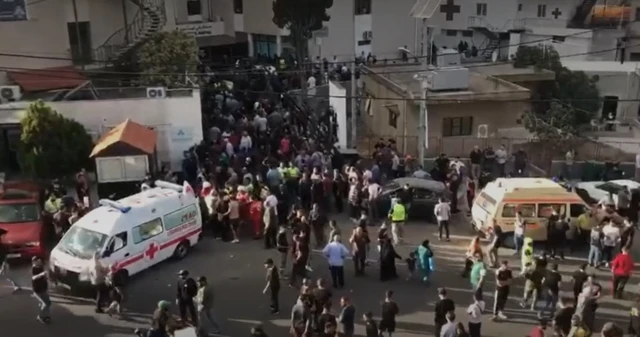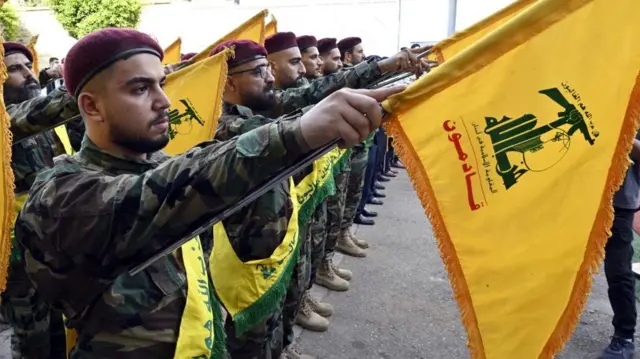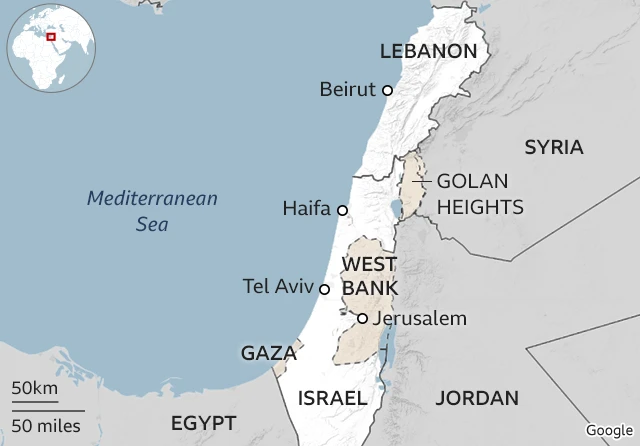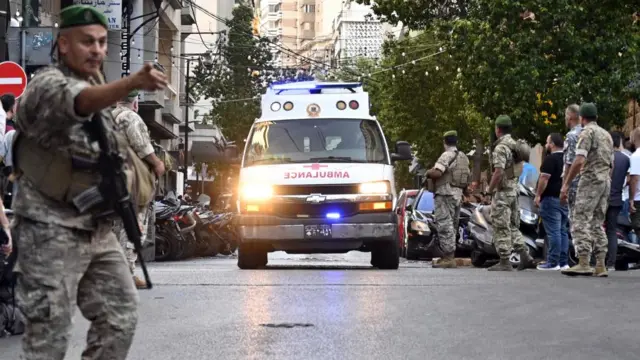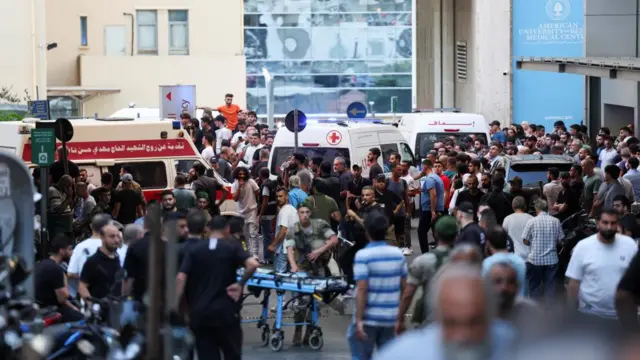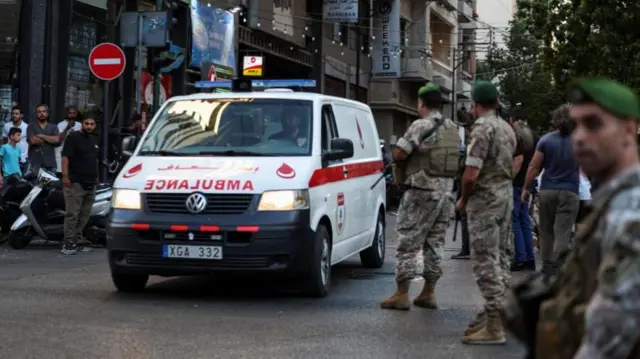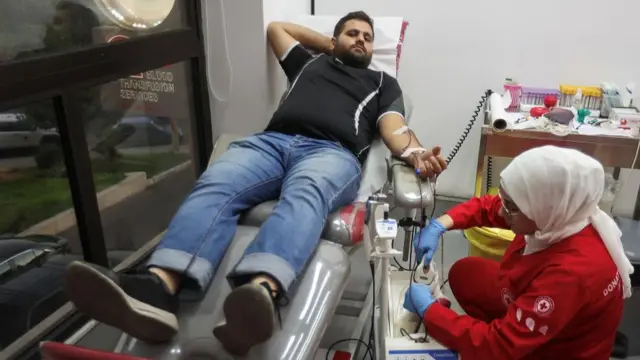Lebanon in state of disbelief and shockpublished at 20:27 BST 17 September 2024
Carine Torbey
Reporting from Beirut
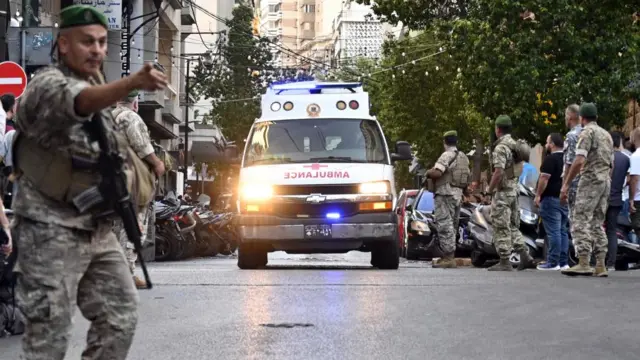 Image source, EPA-EFE/REX/Shutterstock
Image source, EPA-EFE/REX/ShutterstockHours after the mass attack, ambulances were still rushing to hospitals which were overwhelmed with the number of casualties.
Outside, relatives of the injured were gathering in the hope of receiving any updates.
The hospital where we went was closing its main gate and limiting the number of people getting in.
"It's very sensitive and some scenes are horrific," one hospital staff member told me. He added that most injuries are on the level of the waist, the face, the eyes and the hands.
I was told:
Quote MessageA lot of casualties have lost fingers, in some cases all of them."
Tonight, the whole country is in a state of disbelief and shock, with people unable to get their heads around what really happened.
It is unprecedented in scale and nature and extremely hard to fathom even for a country used to unfathomable events.

